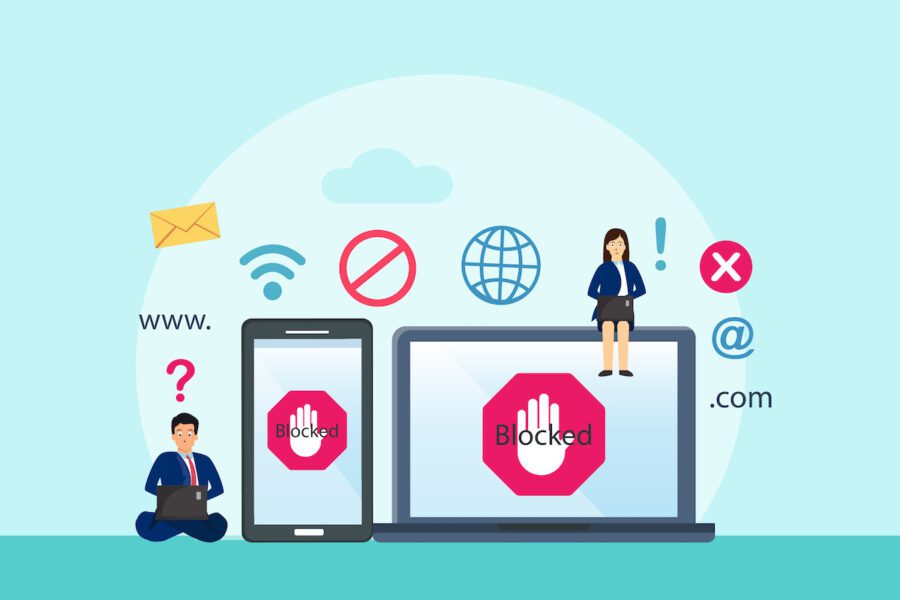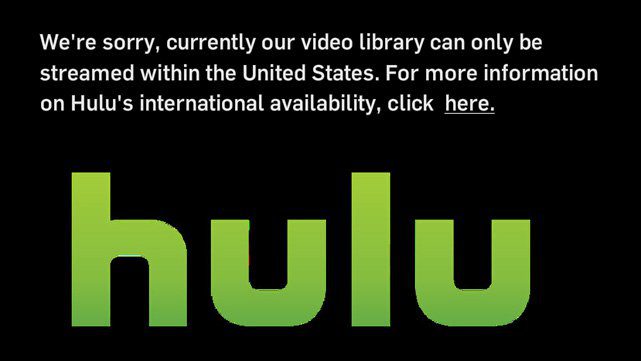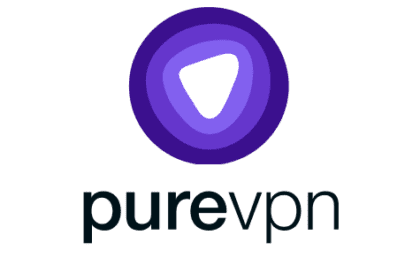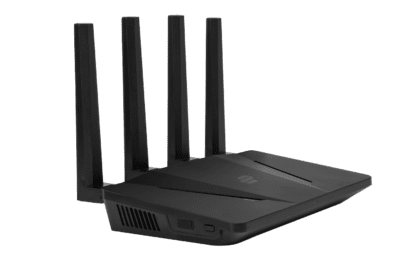Everything You Need To Know About Geo-Blocking and How to Bypass Geo-Blocking In 2024?

If you’ve ever tried to access online content, such as streaming movies and TV shows, only to be met with a frustrating message telling you that the content is not available in your country, then you’ve encountered geo-blocking.
What Is Geo-Blocking?
Geo-blocking is a technique used by online service providers to restrict access to their content based on the user’s IP address. An IP address is a unique identifier assigned to each device connected to the internet. It provides information about the device’s location, allowing online platforms to determine the user’s geographic location.
What Is the Main Reason for Geo-Blocking?
The main reason behind geo-blocking is licensing agreements. Content providers, such as streaming services like Netflix or Hulu, acquire licenses for specific regions. In order to comply with these licensing agreements, they use geo-blocking to restrict access to their content outside of the licensed areas. This ensures that the content is only available to users in regions where the necessary licensing rights have been obtained.
How Does Geo-Blocking Work?
When you visit a website or try to access an online service, your device sends a request to the server hosting that content. The server checks your IP address and compares it to a database of allowed regions. If your IP address is outside of the permitted regions, the server will block access and display a message indicating that the content is not available in your country.
To enforce this policy, online platforms typically rely on the information provided by your internet service provider (ISP). Your ISP assigns you an IP address, which generally corresponds to your physical location. By analyzing this IP address, online platforms can determine your location and apply geo-blocking accordingly.
What Type of Content is Geo-Blocked?
Geo-blocks can touch various types of content, including movies, television shows (linear and streaming), music, and sports.
Streaming Sports and Blackouts

One of the most prevalent uses of geo-blocks is in sports streaming. In many countries, certain games and events are unavailable due to licensing agreements.
On a more country-specific level, there may be regional restrictions or blackouts. This is especially common for US sports, like baseball, where games are split between local, national, in-market, and out-of-market.
Depending on where you live, you may have only access to games of your local team on your local sports channels, like NBC, Fox, or ABC. However, if you happen to follow a different team, you’re limited to the few that are broadcast nationally. You can buy a specific package to follow your out-of-market team via MLB.tv. But, it won’t come cheap, and you’ll still need a cable or OTT subscription to catch all the other games.
Most streaming sports services have not taken the same steps that general video streaming services like Netflix and Hulu have towards blocking VPNs. To get around blackouts, you can tunnel your traffic through a VPN server from a provider, like the one below, so you’ll never have to worry about blackout restrictions.
Streaming Services and Content Restrictions

Streaming services are constantly subject to geo-blocks. Content providers, like Netflix, have vastly different content offerings in different countries. This is due to a number of reasons, such as licensing and distribution deals that offer streaming precedence for specific content to another service operating in that country.
Alternatively, certain streaming services may be unavailable in a given country. For example, Hulu operates only in the US and Japan. That means US residents traveling to the UK may lose access to some of their favorite Hulu shows.
What Are The Best Ways To Get Around Geo-Restrictions in 2024?
While it may seem like an insurmountable obstacle, there are several methods you can use to bypass it and gain access to the content you desire.
Use a VPN to Bypass Geoblocks
A Virtual Private Network (VPN) is one of the most popular and effective ways to bypass geo-blocking. A VPN works by redirecting your internet connection through a server located in another country. By doing this, it hides your actual IP address and assigns you a new IP address associated with the server’s location. This makes it appear as if you are accessing the internet from the selected country, thus circumventing restrictions.
Additionally, a VPN encrypts your internet traffic, adding an extra layer of security and privacy to your browsing activities. This ensures that your data is protected from hackers, government surveillance, or any potential malicious actors.
How To Choose the Right VPN to Bypass Geo-Blocks
When it comes to choosing a VPN, there are several factors to consider. First and foremost, you should select a VPN service that has servers in the regions you need to access. The more server locations the VPN offers, the greater the chances of successfully circumventing restrictions.
Additionally, consider the VPN’s speed and reliability. Since your internet traffic is re-routed through a remote server, choosing a VPN that offers fast and stable connections is important. Look for VPNs that have a good reputation for both speed and reliability.
What Are The Best VPNs For Bypassing Geo-Blocks?

PER MONTH
- Servers in 70+ countries
- Port Forwarding, DDoS protection, and Dedicated IP Available as Add-ons

Take Your Geo-Block Bypassing To The Next Level With A VPN FlashRouter
Using a VPN is great if you’re watching your favorite show or sports event on your computer or phone, but we all know you want to watch on your giant flat-screen TV. Unfortunately, most SmartTVs don’t offer native VPN capability. That’s where FlashRouters come in!
A FlashRouter comes with enhanced firmware that makes managing a VPN on your whole network as simple as clicking a button! With a FlashRouter you never have to worry about device connections, as all your devices count as one connection. Furthermore, you have enhanced network configuration features and simplified network management that you won’t get anywhere else!
AX3000 WiFi 6 VPN FlashRouter

$149.99
- Perfect for Medium Homes
- Perfect for 20-30 Devices
Asus AX1800S FlashRouter

$249.99
- Easy Router Setup via Asus App
- Blazing-fast Wi-Fi 6 (Wireless-AX) Speeds
Flint Wi-Fi 6 VPN Router by FlashRouters

$229.99
- Supports WiFi 6 (Wireless-AX) speeds
- Includes WireGuard Fast VPN Protocol Support
Using a Proxy Service
Another method is using a proxy server. A proxy acts as an intermediary between your device and the website or service you want to access. When you connect to a proxy server, it reroutes your internet traffic through its own connection, effectively masking your IP address and making it appear as if you are accessing the content from the proxy server’s location.
Unfortunately, proxies may not offer the same level of security and privacy as VPNs. Proxies are generally suitable for accessing basic content, but if privacy and security are a concern, use a VPN instead.
Using The Onion Router (TOR)
TOR is a network of volunteer-operated servers that allows users to browse the internet anonymously. By routing your internet traffic through multiple servers before reaching its destination, TOR obscures your IP address and makes it difficult for websites to track your location. However, it’s important to note that TOR was not specifically designed for bypassing geo-blocks, and its effectiveness may vary.
Bonus: Using Smart DNS
Smart DNS is another method that can help you. Unlike VPNs or proxies, Smart DNS does not route all your internet traffic through a specific server. Instead, it only redirects the traffic related to geo-blocked services, allowing you to access restricted content while maintaining better overall internet speeds.
Smart DNS can be a useful option for those primarily seeking to bypass geo-restrictions without the added security and encryption provided by VPNs. A SmartDNS service will not encrypt your IP address. However, services cannot ban SmartDNS proxy servers in the same way they block IP addresses from VPN servers.
If you’re looking for a specific Smart DNS solution, we have a wonderful solution for you!
What Are The Best Routers for Implementing SmartDNS On Your Network?
While SmartDNS and VPN are great options on their own, we have a unique router solution that combines these two powerful tools for any streamer’s dream!
Geo-blocked users unable to access Hulu and Netflix can take advantage of ExpressVPN’s MediaStreamer SmartDNS app, available on ExpressVPN firmware routers. With these routers, connected devices without native SmartDNS support (such as game consoles or Smart TVs) will be able to use the service.
FEATURES
- Built-in Wi-Fi 6
- Supports ExpressVPN Lightway Protocol by Default
- Use Up To 5 Servers At Once With Device Groups
Is Geo-Blocking Legal?
The legality of geo-blocking varies depending on your jurisdiction and the reasons behind the restrictions. In general, the practice is not inherently illegal. Geo-blocks are often the result of licensing agreements between content providers and copyright holders. However, there are ongoing discussions and debates regarding the fairness and legality of geo-blocking, particularly in the European Union.
In 2018, the European Union enacted regulations to address unjustified geo-blocking within the EU. These regulations prohibit unjustified geo-blocking for certain online services, such as e-commerce, but they do not directly apply to online content streaming services. As a result, the legality of bypassing geo-blocking using VPNs or other methods remains a complex and evolving issue.
Is It Legal To Get Around Geo-Blocking?
While there is no universal law that makes it illegal, bypassing restrictions often violates the terms and conditions set by content providers. Certain countries have laws that prohibit the use of virtual private networks (VPNs) or other tools used for getting around geo-blocks. However, in many places using these tools is perfectly legal, as it enables individuals to exercise their right to access information freely.
Consequently, the legality surrounding bypassing geo-blocks is complex and varies depending on the specific circumstances and jurisdiction. Users should familiarize themselves with the laws and regulations of their own country before attempting to bypass geo-blocks.
What Are The Benefits of Bypassing Geo-Blocking
First and foremost, it allows you to access online content that might be unavailable in your region. Whether it’s a specific TV show, movie, or streaming service, you’ll enjoy the content you want, regardless of your physical location.
Secondly, it can also provide greater privacy and security. By using a VPN or other methods, you can effectively hide your IP address and encrypt your internet traffic, making it more difficult for third parties to track your online activities or collect your personal information.
What Is The Difference Between Geo-Blocking and Geo-Restrictions?
Geo-Blocking
Geo-Restrictions
Definition
Outright denial of access based on geographical location.
Customization or adjustment of content, pricing, or features based on location.
Purpose
Enforce regional licensing agreements, comply with local laws, protect intellectual property rights.
Tailor user experience, comply with local laws, adjust pricing, provide region-specific content.
Access
Users from restricted regions are completely prevented from accessing content or services.
Users from restricted regions may access content or services with limitations.
Examples
Blocking specific movies in certain countries on a streaming platform.
Preventing access to websites in certain countries due to legal restrictions.
Displaying region-specific product catalogs on an e-commerce website.
Adjusting prices based on user’s location (e.g., airline tickets)
Flexibility
Rigid and uncompromising; no access without bypassing restrictions.
More flexible, may allow access with some limitations or differences.
Bypassing
Users typically use methods like VPNs or proxy servers to bypass limitations.
Users may not need to bypass restrictions but may encounter limitations.
Have an unanswered question about geo-blocking? Send it over to the FlashRouters Team for the latest solutions.
Best VPN Routers 2024
Looking for the most secure router for VPN service options? Look no further.
















